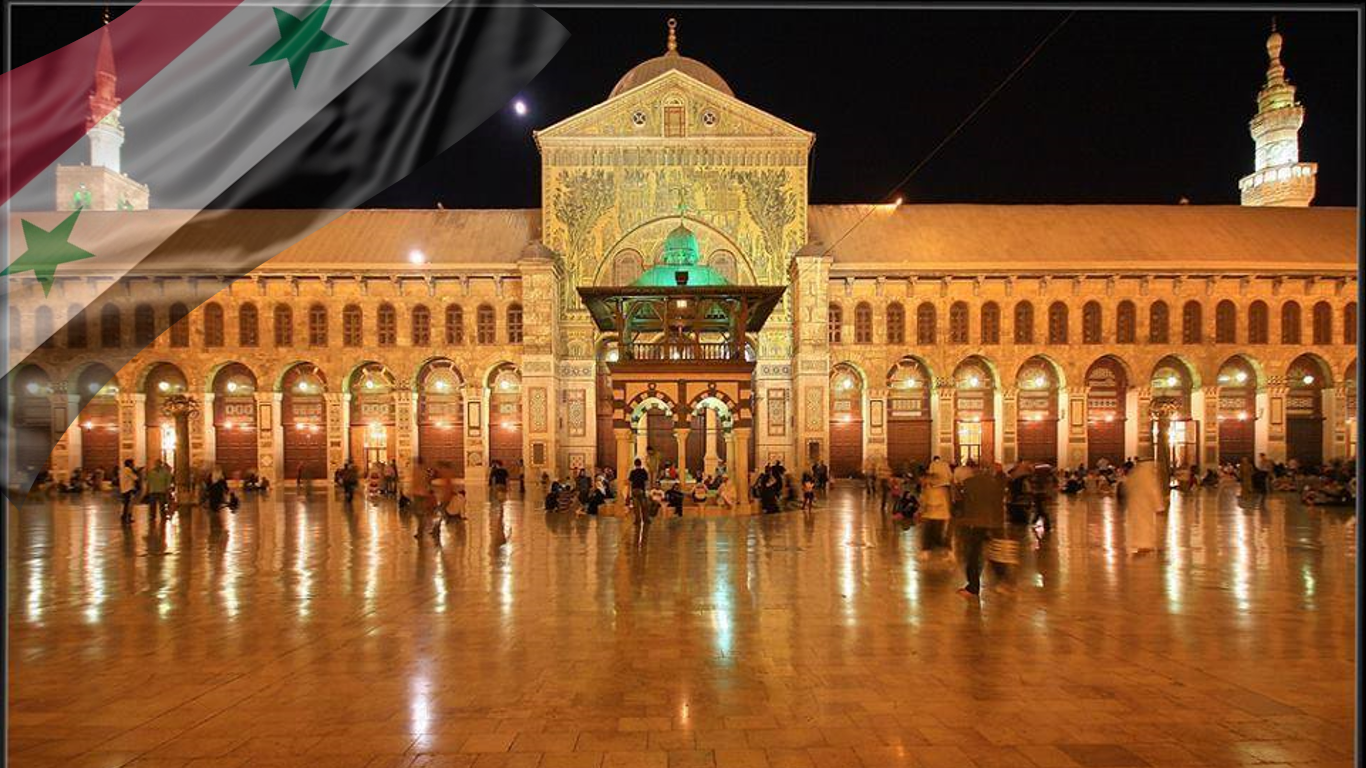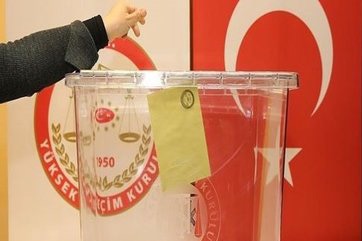In Turkey, local elections were held on 31 March, 2019. It was the first elections held after the presidential system has been implemented last year. Since then the Turkish economy still facing serious problems the Minister of Finance and Treasure, Berat Albayrak showed efforts to persuade some investors in the annual conference of IMF and World Bank in Washington. In addition – especially due to the İYİ Parti – the social and economic problems of the approximately 4 million refugees living within the borders also occurred on the level of high politics. The conflicts between the Turks and Arabs, not just in Gaziantep, but in other cities like Istanbul or Ankara became highlighted. So there were many topics to discuss when the campaign started in the beginning of 2019.
The tension – as usual – was high and the opposition, the Millet İttifakı (National Alliance) containing CHP and İYİ Parti, had huge expectations. On the other hand the so called Cumhur İttifakı (Popular Alliance) – AKP and MHP – tried to emphasized that the economic problems derive from outside forces and the stability and improvement of the country totally belong to them. Therefore, ‘beka meselesi’, which is basically about the sovereignty, welfare and stability of Turkey became the main political message to the voters.
At the end the results show AKP got 44%, CHP 30%, İyi Parti and MHP 7-7% and HDP 4% of the total votes. And however AKP and its ally, MHP managed to remain the biggest political formation in the country, the votes of some Anatolian cities and countryside parts voted again the governing parties had a strong symbolic message. Not surprisingly, the Aegean and Mediterranean sea shore supported CHP in general. Balıkesir is the only exception, where AKP won with 47% against the candidate of İYİ Parti, who got the 46% of the votes.
In this connection, Hatay and Adana, cities heavily populated by refugees mean obvious success for the opposite party. But the real surprise is that by Sinop, Artvin and Ardahan, the traditionally nationalist and conservative Black Sea region also gained three “red” county. Not to mentioned Bolu, Eskişehir, Kırşehir and Bilecik, the landlocked Anatolian territories, that will have CHP governance as well. Regarding the regions mainly populated by Kurdish citizenships, HDP managed to win 8 and finished as the second biggest party in 5 counties. As in 11 out of the 13 mentioned counties the biggest rival was the AKP, it means that the governing party collected many votes even in the Eastern part of the country, where the CHP is mostly invisible. Also worth to know that where MHP won – all together in 11 counties – mainly AKP got the ’silver medal’ and only in Osmaniye and Manisa managed to finish İYİ Parti as second. With Fatih Mehmet Maçoğlu’s victory, the Turkish Communist Party added yet another color to the political map of Turkey.
Above all, the most important and the most argued results came in Istanbul and Ankara, where the local power shifted to the hands of the biggest opposite party. At least it seemed to happen until the first days of May. In the main vain of social and economic life, Istanbul, Ekrem İmamoğlu, the candidate of CHP officially won the elections. However, Binali Yıldırım and AKP rejected several times the results, the Electoral Supreme Committee (Yüksek Seçim Kurulu) refused the complaints (for a while) and confirmed the results officially, according to which the new Mayor of Istanbul would be İmamoğlu.
The two winners – İmamoğlu and Yavaş
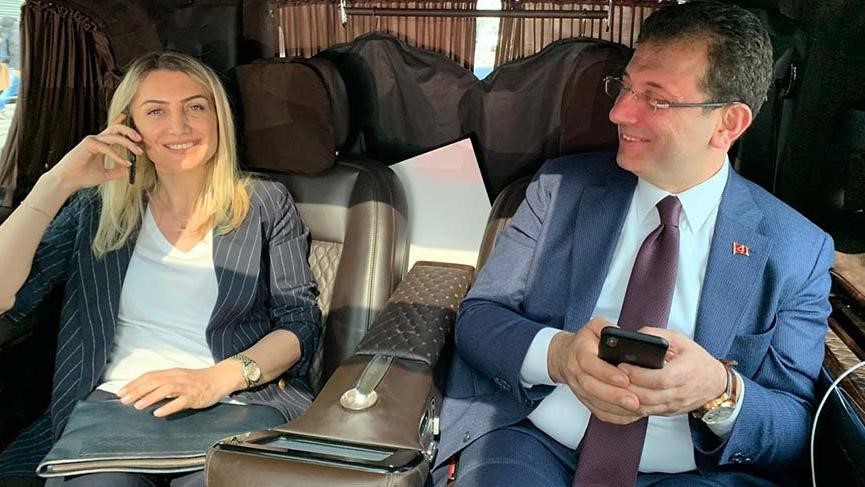
İmamoğlu is a tipical businessman, grew up in the city of Akçaabat, near Trabzon, which is generally known as a traditionally conservative and nationalist province in Turkey. And this atmosphere has had an impact on him, as according to the rumours some of his mates within the CHP considered him as someone who stands close to MHP. İmamoğlu used to be a football player had got his education in Istanbul. He lives in the city since 1991. He joined to the CHP relatively late, when he was 38 years old, so cannot be consider as a typical politician.
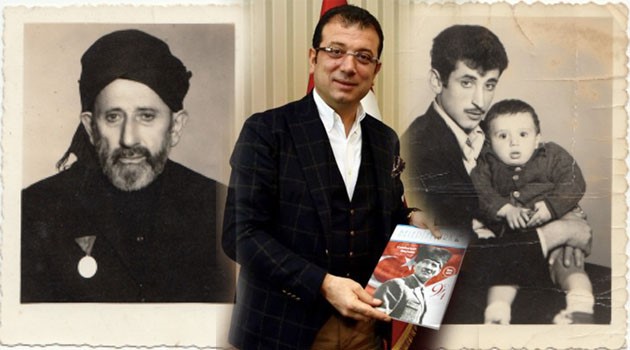
Also important that CHP nominated him instead of the ’strong man’ of the party, Muharrem İnce. Becauase İnce is the most well-known name apart from the chairman, Kemal Kılıçdaroğlu, and he was also the presidential candidate in the presidential elections last year.
Also very interesting that if we compare İmamoğlu’s roots and background with Kılıçdaroğlu’s family, we can see a huge gap. While the former one is proud to his father, who fought together with Atatürk and also became gazi, the latter one’s family origins from the historical territory of Horāsān – modern day Eastern Iran, Western Afghanistan- and belongs to the Kureyşan clan, who speak in Zaza language. Moreover, the Kılıçdaroğlu (until the 1950’s Karabulut) family was heavily involved in the Dersim Rebellion (1937), which was one of the bloodiest uprising against Atatürk’s regime. So much that the whole family was relocated after 1938.
So İmamoğlu’s victory may imply something else also. Namely he can be the next face of his party, a young politician who can unite the nation against the present regime. At least this is the hope and possibly the expectation of many people as well. And this role indeed, is not far away from his image. In a TV interview given to Deutsche Welle, İmamoğlu clearly declared that he is open for any kind of conversation, and he wants to unite the nation by providing peace and showing understanding between each other. In addition, ironically speaking to a German – state run – propaganda channel, he also answered that it makes him sad, if some European countries criticize Turkey, because – so he said – it is not fair to censure the whole nation because of the mistakes made only by a couple of people. According to him, the struggle for democracy (‘demokrasi mücadelesi’) is not such a process, which is easy to finish. It is also worth to know that after the victory, İmamoğlu went to pray to the well-known conservative mosque in Fatih named after (Fatih) Sultan Mehmet II. This gesture was also a clear message to the conservative circles. However, İmamoğlu added that the conquest of Istanbul was not just the victorious commandant of Islam (‘İslam’ın muzaffer komutanı’) but he was an art lover and tolerant leader too. It is also more than obvious that he expects votes from the conservative Kurdish people. That is the reason why before the vote on 31 March, he visited many conservative districts and had face-to-face meetings with some ‘ordinarily’ voters. And however hard it is to decide, whether he was honest or not, he played his role convincingly.
However, Ankara is also very important from political point of view. Mansur Yavaş’s victory – at least by our opinion – does not mean the same pattern so much as the above mentioned example. Yavaş was born in Beypazarı, a small city approximately 100 km’s West to Ankara. He finished his studies in Istanbul and became a lawyer in the beginning of the 1980’s. He started his political career as a member of MHP and served the party until 2013, when he left it. In Beypazarı he became well-known figure country wide due to his restoration projects. In the previous local elections he was already CHP’s candidate for Mayor of Ankara. If we take the information above into consideration, we see that Yavaş is rather a pragmatic lawyer interested in local politics.
Everything is going to be wonderful
When every actor and the international community started to accept the new Mayors and the results, the Electoral Supreme Council (YSK) – unable to resist the political pressure – abolished the results and votes given for the Mayor of Istanbul. A totally new period started. The slogans of the new winner – everything is gonna be wonderful (‘her şey çok güzel olacak’), together with the popular song, saying after the spring, the summer is going to come also (‘bahar geldi, yaz da gelecek’) – became uncertain.
Within this framework, AKP did not miss the chance and emphasized widely that CHP was in a strong coordination with the terrorists backed HDP, the unofficial Kurdish party – or as usually said the political extension of the PKK – in the Parliament (TBMM). And though official cooperation was never confirmed by the parties, especially in the Western part of the country, the candidates of the HDP stepped back and openly promoted the local candidates of the CHP.
Sezai Temelli, one of the chairmans of the People’s Democratic Party (HDP), underlined in his speech in Diyarbakır just a few weeks ago that in order to change the “fascist” regime, they need every democratic force. In addition, like İmamoğlu, Sezai also emphasized the common fight for the democracy (‘demokrasi mücadelesi’).
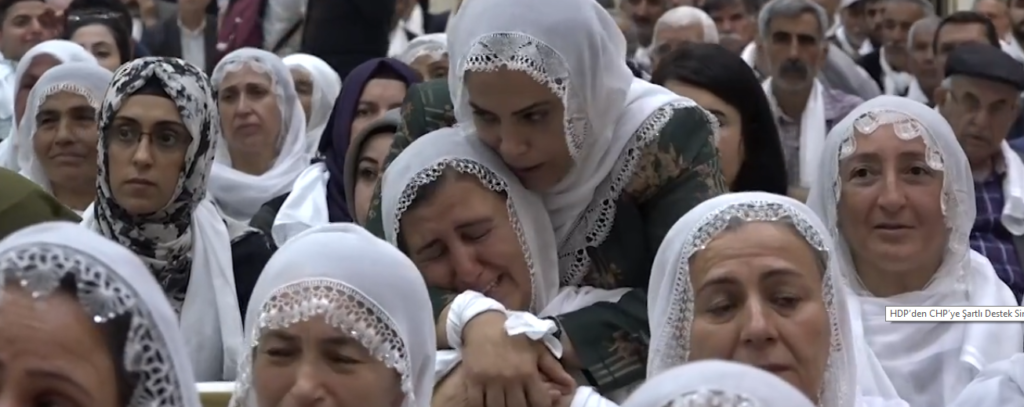
In addition, in connection with İmamoğlu, a lot of theories – also called conteo – appeared according to which the is part of a project organized by European great powers. Of course, mainly those belonging to the Turkish opposition and got financial support from Swedish, US or German foundations refused this theory. For example, a well known name, Demir Murat Seyrek, the senior political advisor of European Foundation for Democracy also declared that there is no ‘İmamoğlu project’, however, he added, in the international relation it is normal to have different interests on different topics abroad. At the same time Seyrek also said that Brussels symbolizes the democracy and Western values for the Turks, while Moscow, Teheran and Washington – “who does not care about democracy at all” – could not be consider as a preferable model for the country.
’I have never seen such a bad presentation by a high ranking government representative’
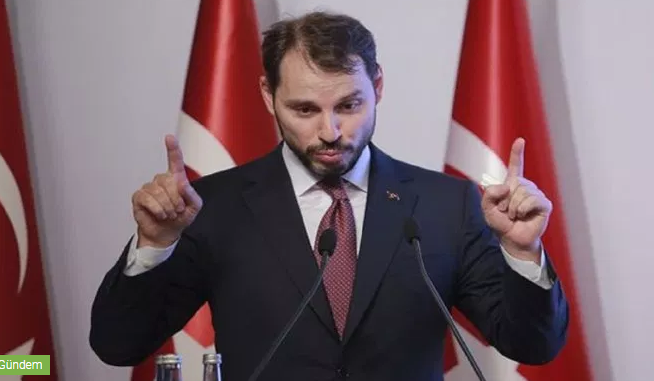
As it usually happens in politics, the votes generally directly reflect the economic output. In parallel with the elections, Berat Albayrak Minister of Treasury and Finance, did try to convince businessmen and great players on the economic field to invest the country in almost every foreign forums and especially in the USA. Because it became more than obvious that in order to reduce the negative trends of the Turkish economy, the ‘green money[1]’ from the Gulf states – especially from Qatar – will be not enough. To stabilize the economy foreign investors are needed. By the way, the gas fields of Cyprus and the oil fields of Libya have extraordinary importance for Ankara just because of that, which perhaps will make the Turkish leadership most determined in these international conflicts. As the channels of the incoming finances are narrowing, not having any other choice, Turkey tries to financially exploit some political crises as well. In case of Libya, the legal and illegal weapon trade are going on since the very beginning of the war in the North African country. Regarding Cyprus, since new gas fields were discovered around the southern and partly northern part of the island, the interested actors like Turkey, Cyprus, US (ExxonMobil), Egypt and France have different opinions about the future of the so called gas blocks.
Turning back to the original topic, the Western media did not miss to underline that the reform plans presented by Albayrak have not been so satisfactory for the investors. Rumours have it that IMF can be again one of the most affective solution for the Turkish government, however, it is also well known that in recent years Erdoğan was proud that he could minimize the amount Turkey had to borrow from the IMF. The promises regarding inflation adjustment, free market and consolidation of banking system have not got positive echos so far. Meanwhile the bazaar also reacted and started to increase the prices, which of course followed by political decisions like the increase of the minimum wages with 26%. Since 1 January, 2019, the net minimum net salary in Turkey is a little bit more than 2000 TL.
Taking into consideration that euro and US dollar still hold their value and the Turkish Lira could not reach its former position, it shows that the Turkish economy will continue to face serious problems. Until the high value added products can not find their way to the customers, Turkey will not be able to reach the economic goals. It is worth to notice in this context that the interest for products of Turkish weapon industry are increasing. The weapons manufactured by Turkey have been already bought by many countries throughout Eastern Europe, Africa, Middle East and Asia. This process also indicates that as the economic channels are tightening, Turkey has to find other ways to have the financial balance in the budget.
Since the economic breakdown AKP had to change its rhetoric and turned to the ‘beka meselesi’, the issue of sovereignty and stability. AKP demanded that only they can assure the future of the state and the country itself. And when İmamoğlu won, and the ruling party realized that some economic circles tended to shift ‘to the other side’, they acted quickly. They intensely increased the political pressure on YSK, which could not resist any more, so seven against four abolished the results May 6 Istanbul elections.
All in all, apart from all the circumstances mentioned above, the most important question is the following. How will the new election on 23 June affect the future of Turkey? Because many people think that if a coup d’etat and an election on 31 March were not enough to change the political map of the country, what can be the next step? How is it possible to change anything if neither the violence, nor the constitutional way was enough? From the opposite side, how is it possible to govern the country, and maintain the independence and stability if the legitimacy is questionable? Can you be credible, if you can not afford to loose even once in your life? Whatever happens in 23 June, next day the sun will rise for sure. But to what sort of Turkey?
[1] Symbolizing the financial support from fellow Muslim powers, most from the Gulf.

